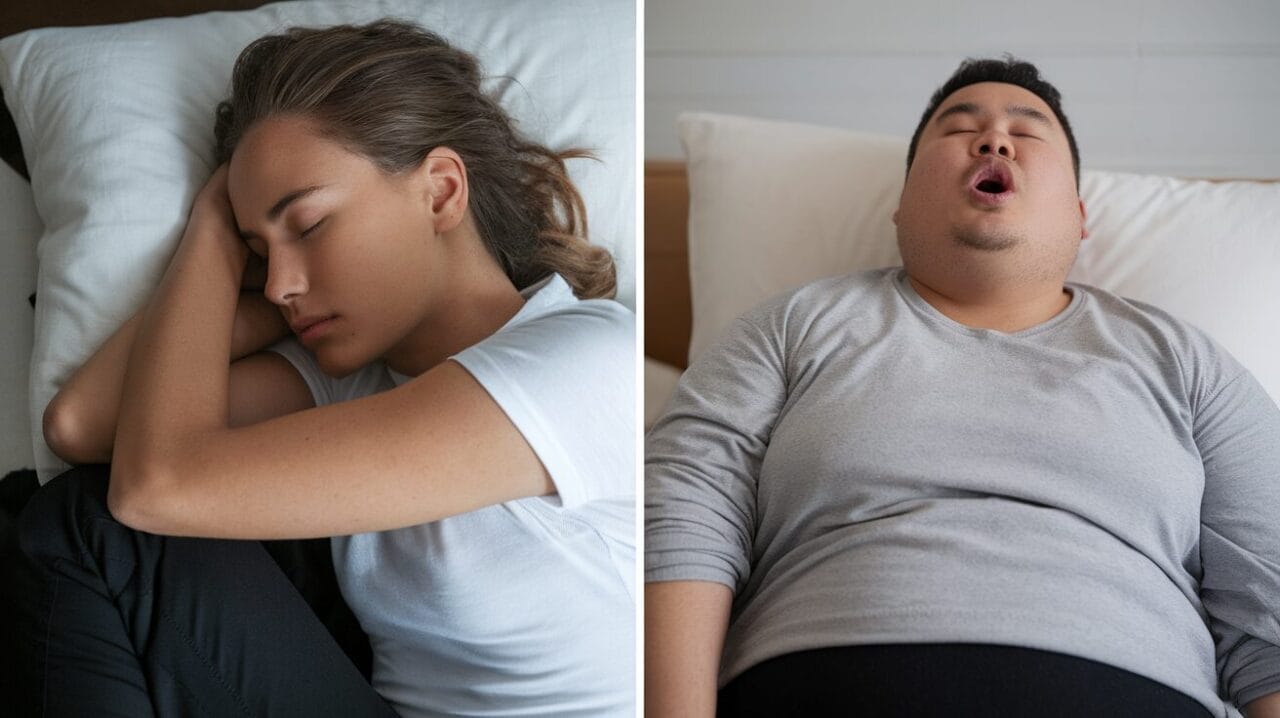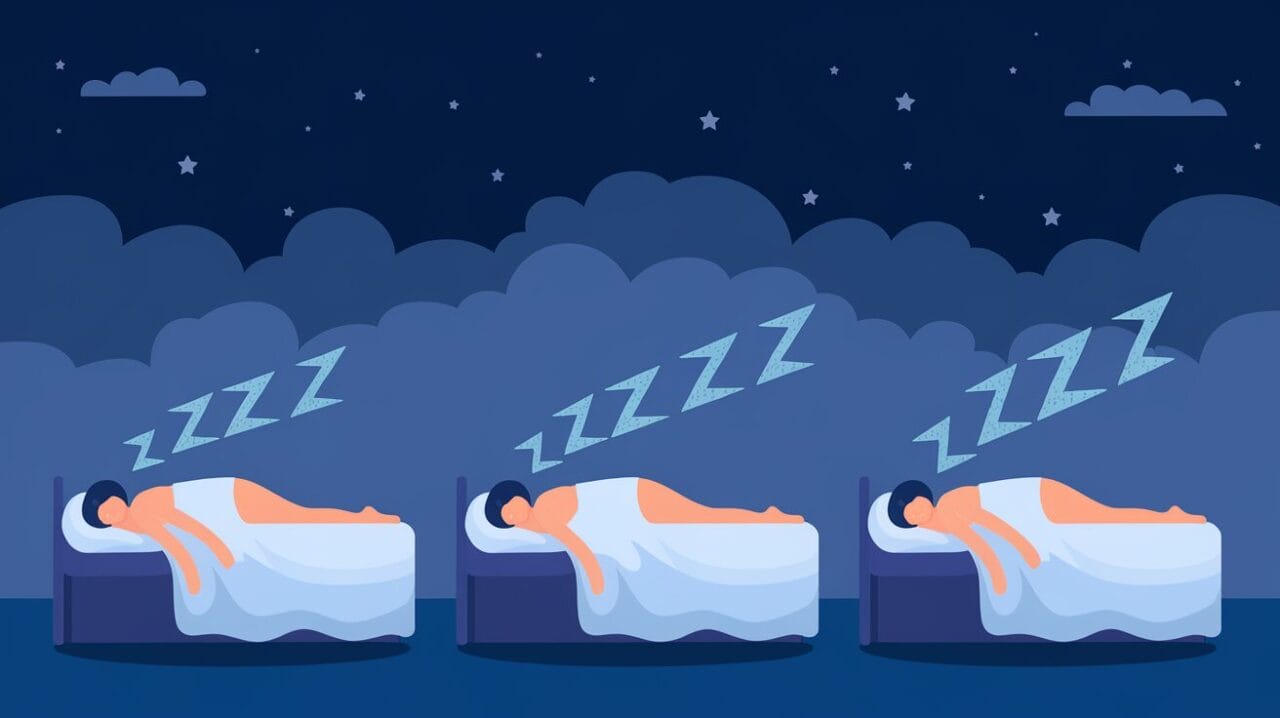Snoring can be a funny little quirk, but did you know that not everyone snores the same way? Some people are more prone to it than others, and a bunch of factors play into why that happens.
Let’s break down the reasons behind those nightly noises and what might be causing them.
Anatomy of the Airway

The structure of our airways plays a big role in snoring. When the airway is narrow or blocked, it can cause vibrations during sleep, leading to those familiar snores.
Factors like anatomy, age, and body weight can all change how our airways function.
Genetic Predisposition to Snoring

Some people snore more than others simply because of their genes. If your parents or grandparents snored, you might find yourself doing the same.
It’s all about the family traits that influence your sleep patterns and airway structure.
Impact of Weight on Snoring

Weight can play a big role in snoring habits. People who carry extra pounds may have more tissue in their throats, which can lead to louder snores.
Losing weight can help reduce snoring and improve sleep quality for everyone in the house!
Sleep Position and Snoring Frequency

Your sleep position can really affect how much you snore. If you tend to sleep on your back, you might notice more snoring, as this position can block your airway.
On the other hand, snoozing on your side may help reduce those noisy interruptions.
Lifestyle Choices That Affect Snoring
Your daily habits can really impact how much you snore. For instance, drinking alcohol or smoking can relax your throat muscles, making snoring worse.
Also, sleeping on your back often leads to louder snores, so switching up your sleep position might help.
Allergies and Nasal Congestion

Allergies can be a major reason why some people snore more than others. When your nasal passages are congested, it makes breathing harder, especially at night. This can lead to snoring as the body struggles to get enough air while you sleep.
Age and Changes in Sleep Patterns

As people get older, their sleep patterns often shift. Many find themselves sleeping lighter and waking more frequently, which can lead to increased snoring. These changes can be influenced by factors like weight gain and muscle tone loss, making it more likely for some to snore at night.

